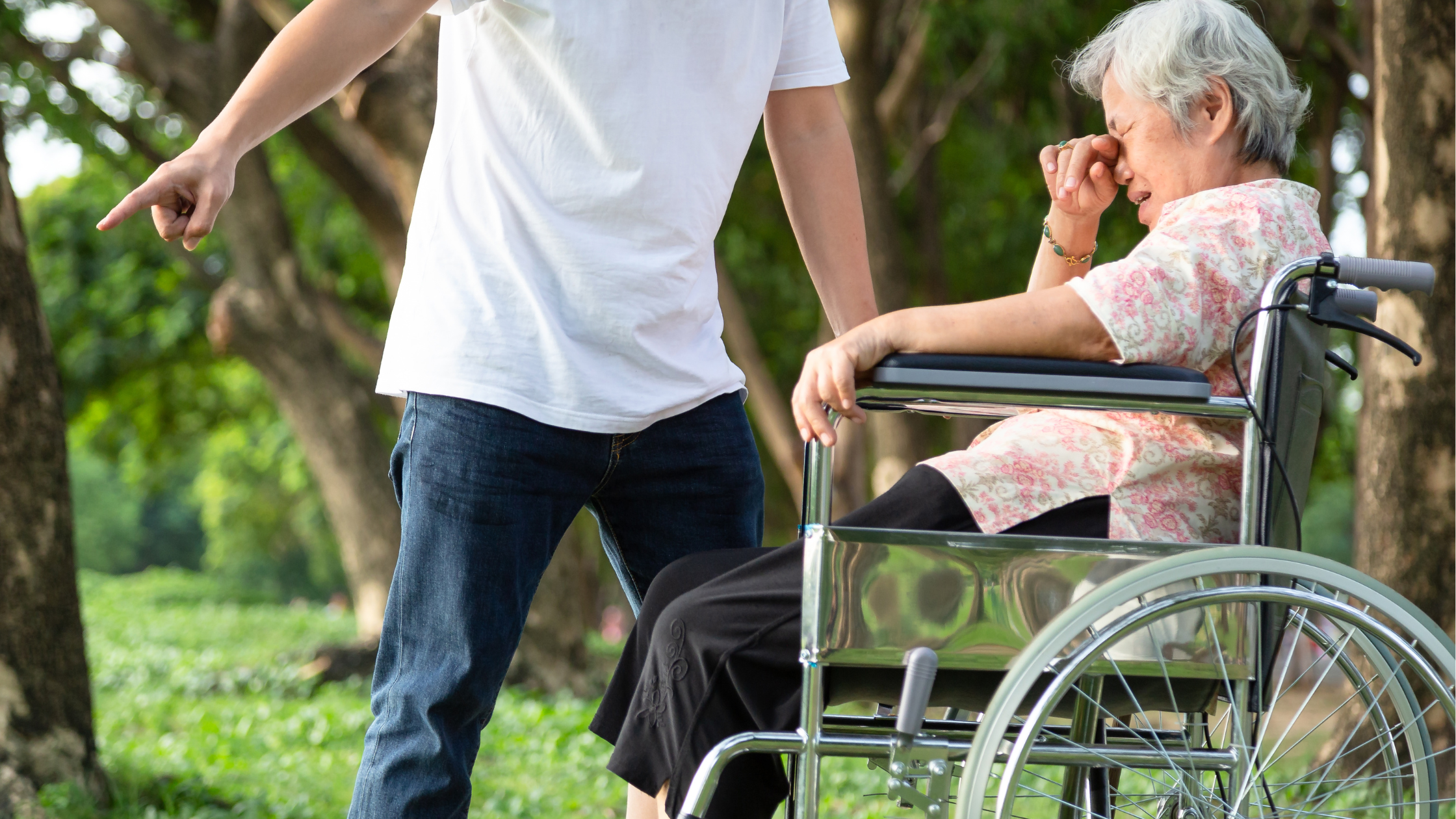What Is Caregiver Burnout and How to Avoid It
Written by TYE Medical on Jul 19th 2024
Caregiver burnout can creep in and disrupt your life, making you feel overwhelmed and exhausted. Sometimes it may even cause you to lash out at your loved one as the weight of caregiving pulls you down a dark hole. This is a common challenge for anyone taking on the rewarding but taxing responsibility of caring for an aging or sick loved one.
But there are steps you can take to manage the stress that leads to burnout and to overcome this difficult time in your life. You can regain your joy, hope, and balanced life as you do what is best for your family member.
What Is Caregiver Burnout?

Along with the many rewards caregiving brings, it also comes with emotional, physical, and mental stressors. The often long-term nature of caregiving means that years can turn into decades, allowing emotions to build over time and snowball into what feels like a crisis point.
Left unchecked, caregiving stress can begin to impact your health, relationships, and mental health. This leads to burnout, a state of mental, emotional, and physical exhaustion. When you burnout, you’re not the only one who suffers: the person you’re caring for is also impacted.
Climbing out of this pit and staying proactive about managing stress is critical. This will require taking care of yourself emotionally and physically. It’s more important than anything else you do, because without necessary self-care, you won’t be able to effectively and lovingly provide care for your loved one. Often, burnout leads you to quit.
Signs of Caregiver Stress and Burnout

It’s crucial that you learn to recognize caregiver stress and burnout as symptoms arise. This will help you take action to prevent more serious consequences.
Common Signs of Caregiver Stress
- Anxiety, depression, irritability
- Difficulty sleeping
- Overreacting
- Feeling tired and run down
- New or worsening health problems
- Trouble concentrating
- Drinking, smoking, or eating more
- Neglecting responsibilities
- Feeling increasingly resentful
- Foregoing leisure activities
Common Signs of Caregiver Burnout
- Feeling completely drained of energy
- Frequently sick
- Fatigue doesn’t improve with sleep
- You stopped taking care of yourself or meeting your own needs
- Your life revolves around caregiving but you resent the responsibility
- You struggle to relax even when you’re “off duty” or someone is there to help
- You’re increasingly impatient and irritable with the person you’re caring for
- You feel helpless and hopeless
Caregiver burnout is essentially a more advanced state than caregiver stress, which means the symptoms are similar, only more intense.
How to Avoid Caregiver Burnout

The key is to realize that you’re not powerless. You might have access to all the resources you need to make the situation easier, but you can find more joy and hope. So, don’t fall into the trap of self-pity and victimhood. Even though you likely didn’t choose this turn of events, you can enjoy happiness despite the circumstances.
Accept Your Circumstances
The burden you carry as you tend to a sick or aging loved one can feel unfair. You have probably asked “why?” But these thoughts sap your energy and can quickly turn negative. The answers are at best, unclear. Running that rabbit trail won’t make you feel better. Instead, accept that there is no one to blame and no understandable reason. Embrace the choice you made to provide care and support. Focus on the meaningful motivations behind what you’re doing.
Know You’re Appreciated
Everyone needs to feel appreciated, and it helps you bear stressful and difficult citations. You may wonder how to gain this needed appreciation when your loved one is not willing or able to show it. But there are a few approaches you can take to find the appreciation you’re lacking.
- Imagine how your loved one would respond to your care if they were healthy, physically and mentally. While this may not be helpful for all situations, it can be an encouragement if you have memories of this person being appreciative. Remember how they used to be.
- You can also find ways to reward and encourage yourself for the care you are providing. Remind yourself of the value of your help.
- You gain validation and appreciation from people other than the one you’re caring for. Seek out supportive friends and family and allow them to provide the encouragement you need.
Ask for Help with Caregiving
While you likely perform the majority of the caregiving, remember that everyone needs a break or some time away. Seek the help of professionals, friends, family, or even respite care services to cover you during times of the day or week. Seek longer periods of rest and schedule getaways or even a vacation when possible. It’s important that you don’t try to do it all alone.
Take Care of Yourself
This cannot be overstated. You may even need to ask for help to accomplish this on a basic level. If so, do it. Be sure you make time to keep your doctor appointments, exercise, relax, eat well, and get sleep. Skimping on these for the short-term won’t cause a lasting problem. But denying yourself these needs for the long-term can have drastic effects and lead to caregiver burnout.
Finding Purpose in Caregiving

When you understand the signs of caregiver stress and burnout, you can detect when you’re neglecting yourself too much. To find purpose in caregiving, remember why you’re doing it, seek out appreciation, accept your circumstances, ask for help, and take care of yourself. When you have all these things working on your behalf, you’ll find that feelings of hope and purpose rise to the surface.


